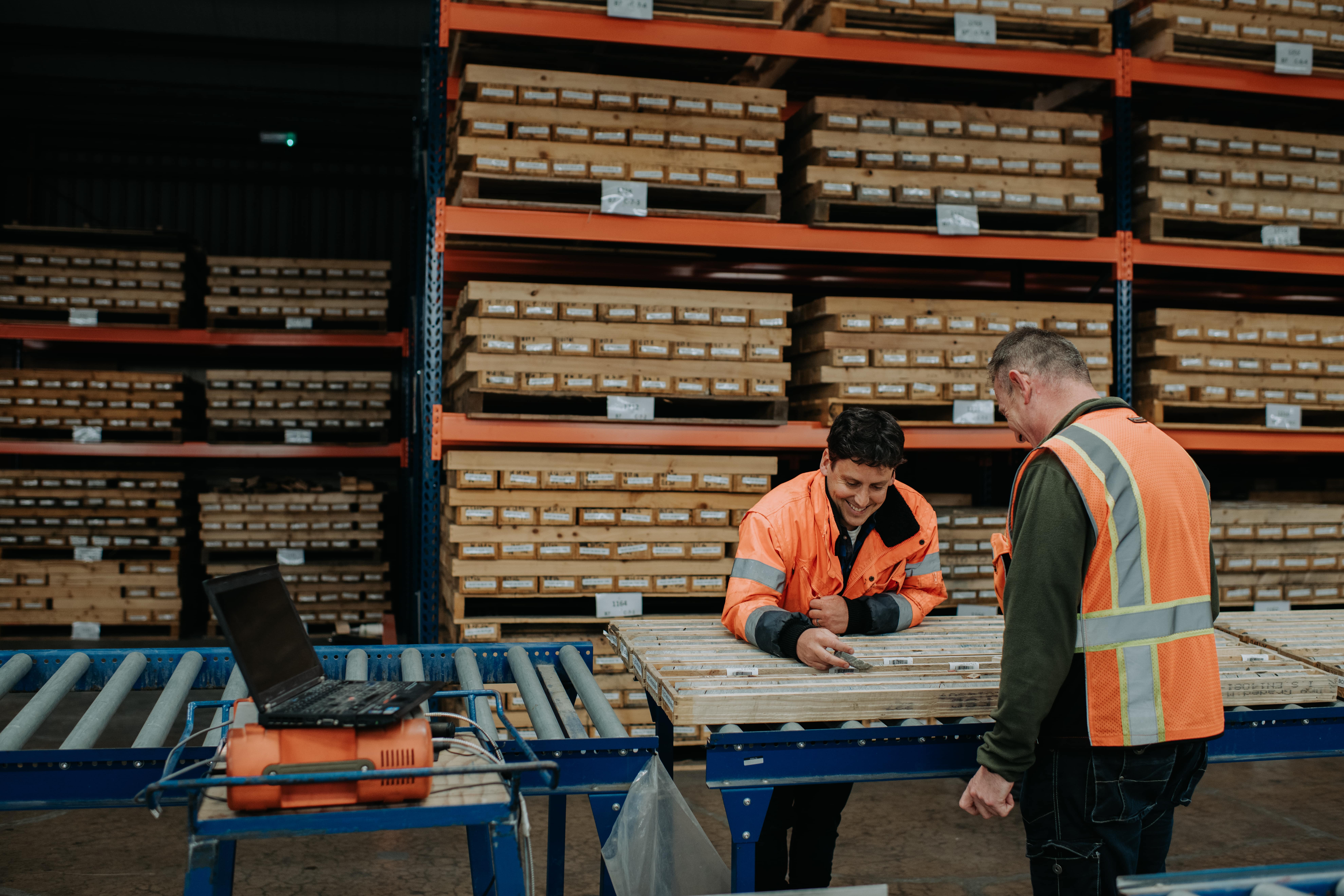
Article
Critical Minerals - Shaping Our Future
What are critical minerals and why do we need them?
In our rapidly evolving world, where technology and innovation drive progress, there's a hidden force that plays a pivotal role in enabling these advancements: critical minerals. These elements are the building blocks of our modern society, powering everything from smartphones and electric vehicles to renewable energy systems and advanced medical technologies. The importance of critical minerals cannot be overstated; they are the backbone of our technological revolution and the keys to a sustainable future.
Many developed countries are creating or considering critical mineral lists as part of their efforts to ensure a secure and sustainable supply. These lists can help governments prioritise domestic production, research and development, recycling efforts, and international trade agreements related to these minerals. By doing so, governments aim to reduce their dependency on potentially unreliable foreign sources and ensure the availability of these minerals for their industries. Availability and reliable supply of critical minerals have become concerns due to their importance in modern technologies and potential geopolitical risks associated with their sourcing. Our region has a reliance on imports of raw materials and a corresponding need to boost our local capabilities to create resilient supply chains.
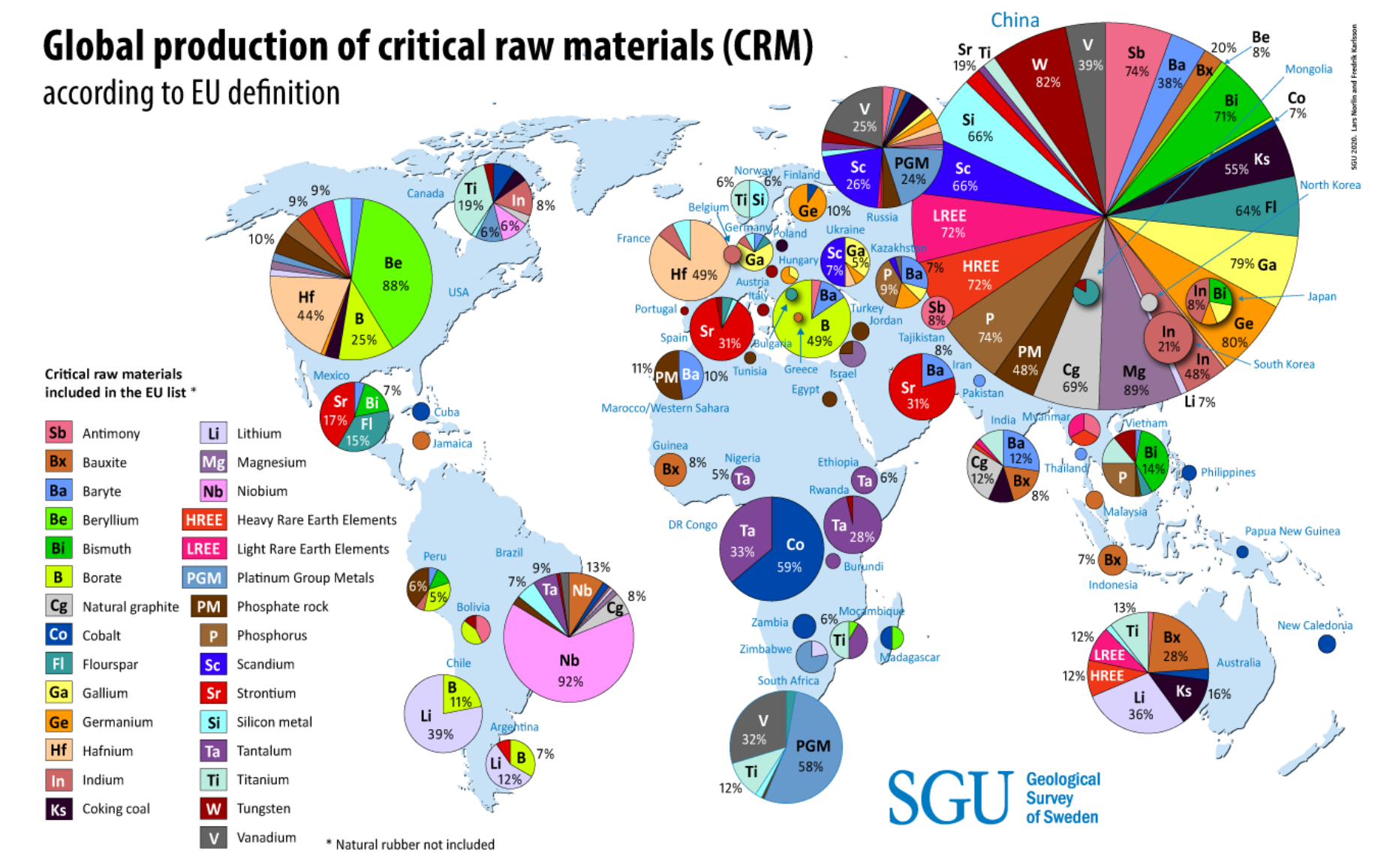
The UK’s Approach
The UK government published its Critical Minerals Strategy in July 2022 and published a “Refresh” in March 2023 to address security and support the future of industry in a sustainable manner. The strategy sets out how the UK government plan to do this using the A-C-E approach.
Accelerate the UK’s domestic capabilities.
Maximise what the UK can produce domestically, where viable for businesses and where it works for communities and our natural environment.
Rebuild our skills in mining and minerals.
Carry out cutting-edge research and development to solve the challenges in critical minerals supply chains.
Make better use of what we have by accelerating a circular economy of critical minerals in the UK – increasing recovery, reuse and recycling rates and resource efficiency, to alleviate pressure on primary supply.
Collaborate with international partners.
Diversify supply across the world so it becomes more resilient as demand grows.
Support UK companies to participate overseas in diversified responsible and transparent supply chains.
Develop our diplomatic, trading and development relationships around the world to improve the resilience of supply to the UK.
Enhance international markets.
Boost global environmental, social and governance (ESG) performance, reducing vulnerability to disruption and levelling the playing field for responsible businesses.
Develop well-functioning and transparent markets, through improved data and traceability.
Champion London as the world’s capital of responsible finance for critical minerals.
There are currently 18 metals and minerals on the UK’s Critical Raw Materials (CRM) list, with an additional 5 on the “watchlist”. The UK’s list is reviewed periodically, as is the case with other countries, and is likely to change over time based on evolving economic, technological, and geopolitical factors.
The Dalradian Deposit
In addition to gold, the Dalradian deposit contains copper and silver – metals important for society’s transition to renewable energy. With projected increases in demand, it is likely that copper and silver will be added to the UK CRM list in the coming years. A recent study by the World Bank titled "Minerals for Climate Action" found that demand for silver is expected to increase by more than 300% and copper by 200% by 2050. Both metals are already recognised as “critical” in Japan, with copper also recognised in China, the EU and more recently in the US. Gold is recognised by China and Japan as a critical mineral.
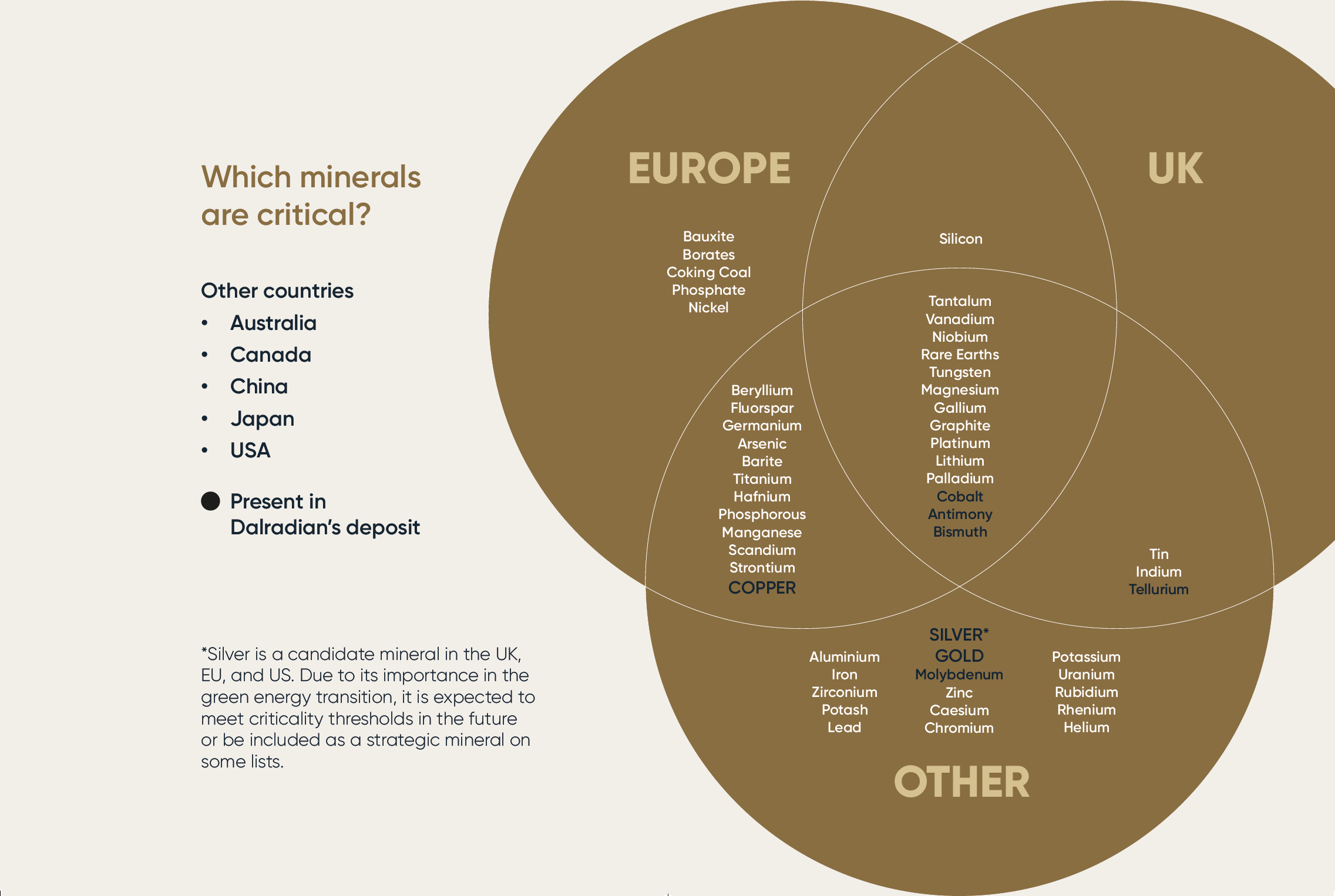
The British Geological Society published a report earlier this year identifying areas of the UK as prospective for critical raw materials – mid-Tyrone was one of the locations highlighted. We support the work that they are doing to further understand the potential availability of critical minerals in the region. Ongoing research has indicated our deposit contains several critical minerals essential for green growth including tellurium, antimony, bismuth and cobalt. Interestingly, critical minerals are usually found in association with other minerals and as a by-product of mining for the primary mineral and availability can be reliant on the availability of the main metal. An example of this is Kankberg Gold Mine in Sweden: its main product is gold, but the mine also produces 7% of the global supply of tellurium as a by-product.
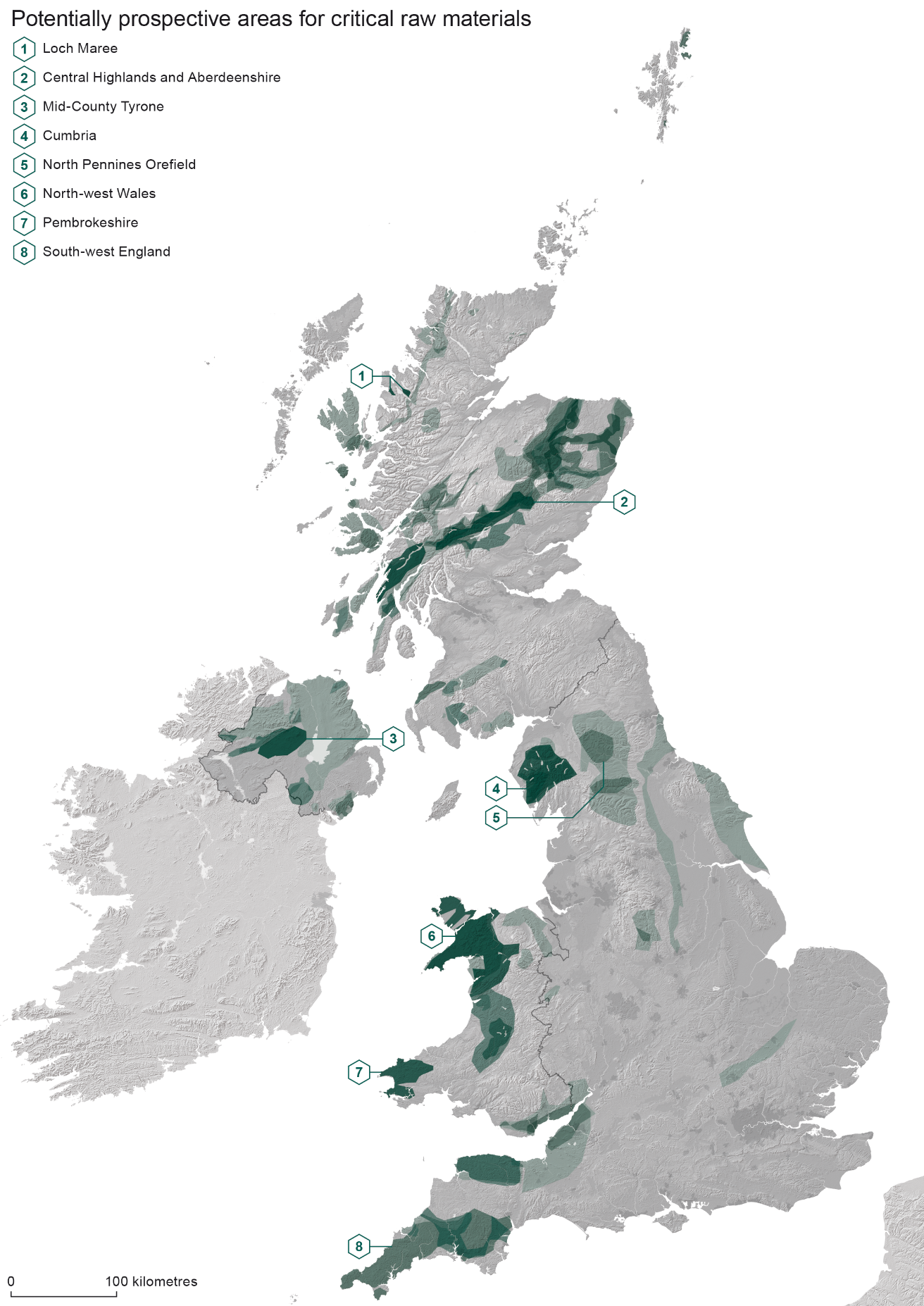
Shaping Our Future
In addition to work on our copper-gold-silver deposit, our geology team test our broader licence area for over 50 elements including base minerals, critical minerals, rare earth elements and precious metals. Embracing responsible mining of critical minerals brings numerous advantages, assisting in achieving the government’s goal of being net zero by 2050 and accelerating domestic production, as well as economic benefits, such as creating jobs and bolstering local economies. The UK has the opportunity to propel itself as a global leader not only in technological innovation but also in sustainable energy. The path ahead is clear: it's time to dig deep to shape our future.

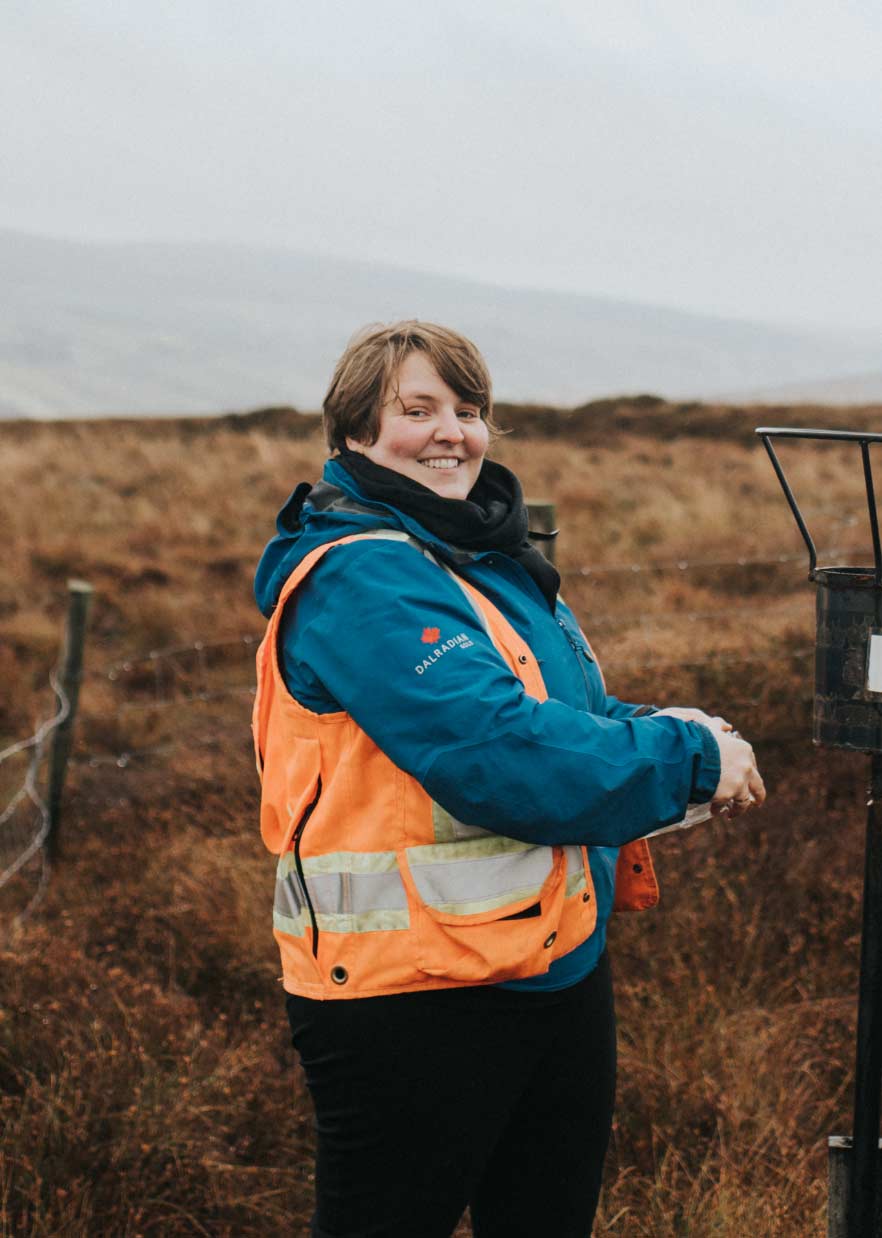
Your support matters
Support our plans to create jobs, strengthen the local community and respect the environment. The Department for Infrastructure will take your views into account. Help make our plans a reality.
Your letter of support will be sent directly to the Department for Infrastructure. Dalradian will not see your letter, nor any of your details.
Great things can happen with your support
Support our plans to create jobs, strengthen the local community and respect the environment. The Department for Infrastructure will take your views into account. Help make our plans a reality.
Customise a letter of support in two simple steps:
Provide your personal details
This will signal your support to the Department for Infrastructure. You can choose to keep these details private.
Tell the Department for Infrastructure why you support the project
Please tick all the elements you like about the proposed project.
Dalradian will not see your letter, nor any of your details. Your letter of support will be sent directly to the Department for Infrastructure
